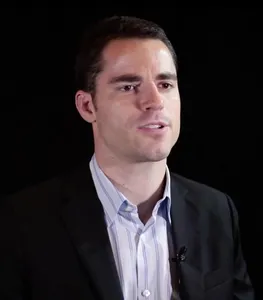Founder of My Big Coin convicted of $6 million crypto fraud
- "My Big Coin Founder Convicted of Cryptocurrency Fraud Scheme", U.S. Attorney's Office of the District of Massachusetts
Former Coinbase product manager charged with tipping off co-conspirators about tokens that were about to be listed on the exchange
Wahi allegedly used his access to highly confidential information around which cryptocurrency tokens would be listed and when the news would be announced to tip off his brother and friend, who would then use multiple anonymous Ethereum wallets to purchase large quantities of the token before the prices spiked on the news. According to the press release, the two took positions in at least six tokens before Coinbase announced in April 2022 that they would be listing them on the exchange. The DoJ said that the scheme had generated approximately $1.5 million in gains. The DoJ acknowledged a "Twitter account that is well known in the crypto community", likely referring to Cobie, who identified the suspicious activity.
The DoJ also reported that when Coinbase's director of security operations contacted Wahi in May asking him to attend a meeting regarding the suspicious activity, Wahi purchased a one-way flight to India in an attempt to flee the country. He was stopped by law enforcement.
The U.S. Attorney for the Southern District of New York stated in the press release, "Today's charges are a further reminder that Web3 is not a law-free zone... fraud is fraud is fraud, whether it occurs on the blockchain or on Wall Street."
Each of the charges (four against Wahi, two each against his brother and friend) carried a maximum sentence of 20 years. In May 2023, Ishan Wahi was sentenced to two years in prison; Nikhil was sentenced to ten months in prison.
- "Three Charged In First Ever Cryptocurrency Insider Trading Tipping Scheme", U.S. Department of Justice
- Indictment
Korean authorities raid seven cryptocurrency exchanges in relation to Terra investigation
FBI warns of fraudulent crypto apps that have stolen an estimated $42.7 million
The FBI stated they had identified 244 victims, and estimated the total loss associated with these fraudulent apps to be around $42.7 million.
- "Cyber Criminals Create Fraudulent Cryptocurrency Investment Applications to Defraud US Investors", Federal Bureau of Investigation
Binance faces €3.3 million fine for operating in the Netherlands without registering
The fine was imposed on April 25, 2022, and Binance filed an appeal in June. This is not Binance's first time playing fast and loose with regulatory bodies — in February, Binance halted activities in Israel due to being unlicensed. In December 2021, the Ontario Securities Commission released a statement to say that Binance wasn't registered in the province, but Binance continued to operate there anyway for several more months.
Police shut down the AEX crypto exchange
Then, on July 17, the exchange released a new announcement: "Due to cooperation with the police investigation, the platform has suspended related services... Please wait for the police announcement." They also wrote in the post, "AEX reserves the right of final interpretation of this announcement", and below the signature wrote, "The closer you look, the further you see."
John McAfee associate fined $376,000 for pump & dump scheme and undisclosed promotion of ICOs
McAfee died by suicide in June 2021 in a Spanish prison, shortly before he was due to be extradited to the United States on tax evasion charges. His death kicked off a tornado of conspiracy theories by QAnon followers.
Now, the SEC has wrapped up the investigation, finding his partner in crime responsible for the undisclosed promotion and pump and dump scheme. In addition to a $376,000 fine, Watson is prohibited from any professional cryptocurrency trading.
Report claims that Binance served Iranian customers in violation of sanctions
The usage of the exchange by residents of sanctioned countries could draw the attention of US regulators. It's also the latest in several investigative reports by Reuters into Binance, in addition to a June report that the exchange facilitated $2.35 billion in illicit transfers from 2017–2021, and an April report that Binance supplied the Putin regime with information about crypto donors to opposition leader Alexei Navalny.
CoinFLEX sues Roger Ver to try to recover claimed $84 million debt
Although they initially dodged naming the counterparty, CEO Mark Lamb eventually publicly stated that this counterparty was Roger "Bitcoin Jesus" Ver, who he said failed to meet a $47 million margin call. However, Ver publicly refuted this claim, stating that CoinFLEX in fact owed him money. Both parties went back and forth, each accusing the other of misrepresenting the situation.
On July 9, the company stated that they would be seeking arbitration to recover $84 million from Ver — an updated figure that they said factored in the "significant loss in liquidating his significant FLEX coin positions".







